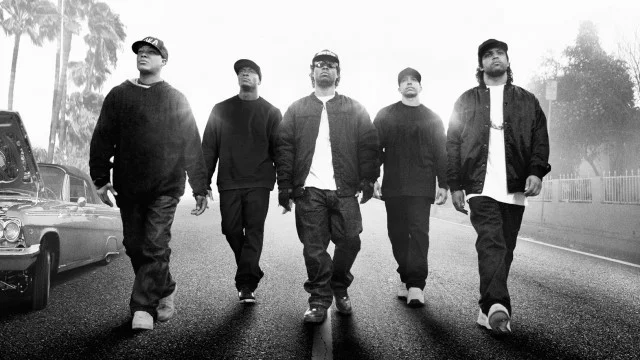The Hateful Eight
The Weinstein Company
Writing a review of any Tarantino work usually causes me to exhale loudly in anticipation, knowing I will have to try and untangle the controversy in order to form a coherent opinion of the film. Tarantino uses controversy as his currency, and many of his films are reviled for it. Tarantino doesn’t shy away from race, gender, history, or black comedy, and in this newest Western there’s a lot to talk about, a lot to flinch at, and much that delights the ears and eyes. Without further ado, let’s pick apart “The Hateful Eight,” the eighth film by Quentin Tarantino.
The Weinsteins made Tarantino a critical darling with their backing of “Reservoir Dogs,” and “Pulp Fiction,” and have been behind the wunderkind ever since. The Oscar glory has faded some since the nineties, but “The Hateful Eight” garnered an impressive three nominations and subsequent win for Ennio Morricone’s score. Morricone is one of the least observed masters in the industry, especially when looking at John Williams, who was especially honored at the ceremony this year. His win was especially deserved for this film, who’s score was beyond memorable, and lent true depth to the candidly amazing visuals of the winterized mountain terrain. Jennifer Jason Leigh was up for Best Supporting Actress, and I had previously stated that I think she should have won over Alicia Vikander, which is a position I still maintain. I might be a bit biased because I believe that Leigh is one of the greatest actresses of this generation and doesn’t get the credit she deserves, but there’s no arguing on the point that she had an out and out outstanding performance as Daisy Domergue.
The Weinstein Company
As always the cast is an ensemble, which always creates due tension in the plot. The story is set in a post-Civil War nineteenth century where the purveyors of the war are all huddled in an inn against an oncoming blizzard. Adding the tension of Daisy as captive, and a possible accomplice among the ranks of the strangers at the inn, it’s clear that something insidious is afoot. The controversies of the film include: abject violence, most of it directed at Daisy, the subject of slavery and racism, brought to attention by Samuel L. Jackson’s former war hero rattled by a former Confederate general and soldier at the inn, and the obvious language and visuals. The violence against Daisy is calamitous, but adds something quite complex to the plot. Daisy is the main villain of the film, because she is a murderer and gang accomplice, so she is treated as such by her keeper, Ruth (Russell). If she were played by a man this would be in keeping with the time and place of the story, and here it adds authenticity to the narrative.
The film itself is great, if a little long winded. The entire exchange between Major Warren (Jackson) and General Smithers (Dern) was so strange and long that it took a lot away from the plot, yet still it was needed in order to establish important themes later in the story. The use of cinematography, costuming, music, and Tarantino’s patented mis-en-scene created such a carnal experience onscreen that it could be nothing but brilliant. Yet another great addition to the Tarantino canon, and a truly thought provoking watch.





